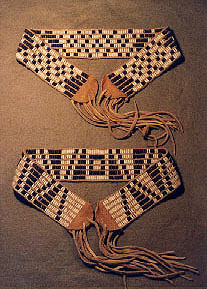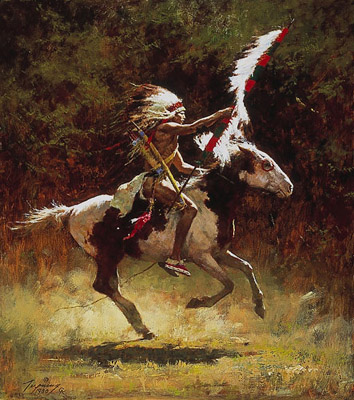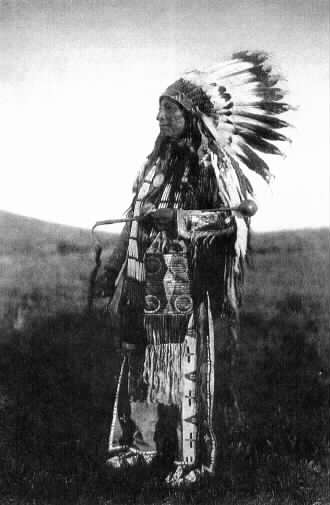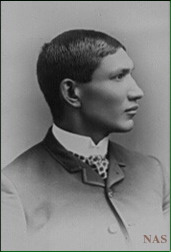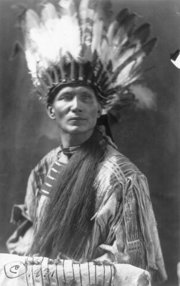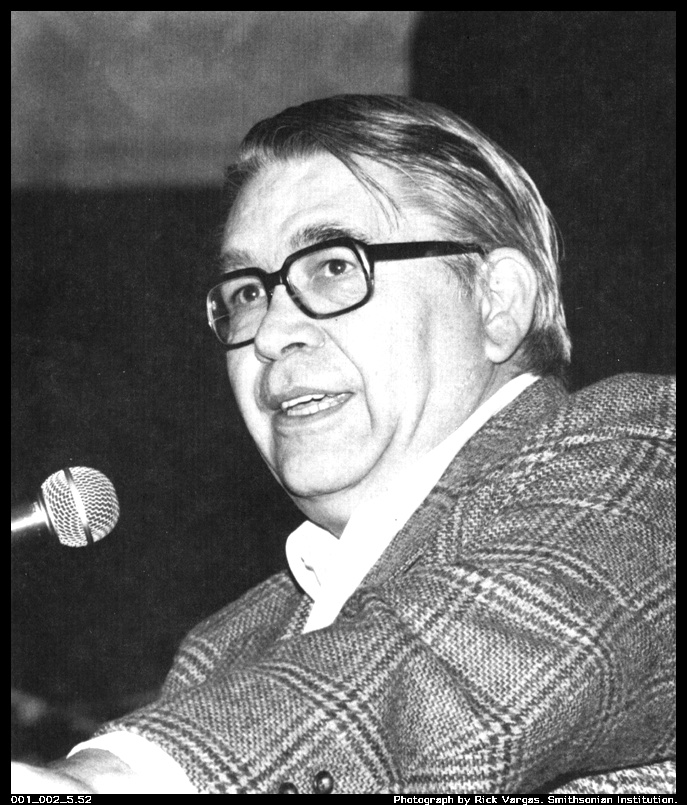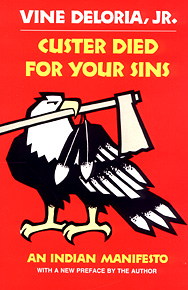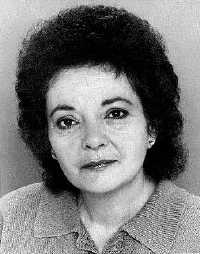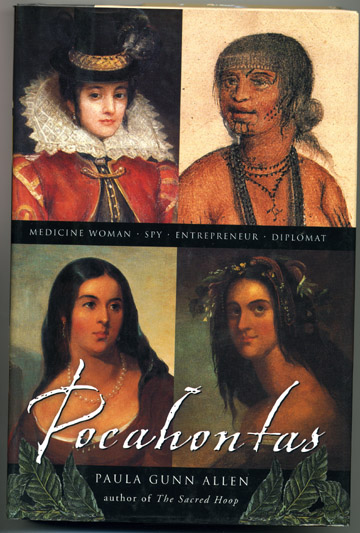LITR 5731 Seminar in Multicultural Literature
American
Minority Literature

Lecture Notes
American Indian Origin Stories; begin Black Elk Speaks
| Midterms
Introduce American Indian Literature > Origin stories Black Elk discussion: [break] assignments, midterm, research proposals poem: |
|
American Indian Literature
How does African America become "dominant" minority in American literature?
Equiano a multitude of black people, of every description, chained together
Africans of all languages
Conclusion: African Americans cannot retain their African languages b/c no one to speak them with; they are forced to learn English
Contrast Native Americans and Mexican Americans, who sometimes retain non-English languages for generations (good in some respects, but limits development of literature and readership in English)
announcements
from the bookstore . . .
Have Your Students Bought All Required Texts?
We will soon begin returning unsold textbooks
We want to make sure students have the books they need to complete their courses. Please announce to your classes that if students haven’t bought their texts, they should do so in the next week.
However, we know there may be titles that should be kept in stock late into the term and we are happy to keep them on the shelves for students to buy.
Please let us know by October 5th if you have titles you would like held.
Midterms
Assignments, incl. midterms and research proposals
Turn in by Sunday or communicate where you are in process.
Midterms returned?
Depending on when they're turned in, I'll try to turn them around within a week.
Instructor's grade and response arrive via email.
Note (2-3 paragraphs?) + midterm grade
No internal marks unless indicated in note
Welcome to reply to email
Any student is always welcome to an in-person review of midterm, or phone or email for more details.
Instructor's note emphasizes writing, how to accomplish better what you're attempting.
grad student / prof relation: prof still has the grading power, etc., but more like a dialogue between becoming-equals
Which is to say, it's good to talk . . . . Don't "hide" from professorial power-beams! Part of graduate instruction is to confer, but at this level it's all worked out individually.
Instructor's questions for today:
For Black Elk (later):
How much is Indian life "Romanticized?" (Indian as noble savage, close to nature, etc.) Where does it escape Romanticizing?
For Origin Stories:
What knowledge gained? What questions raised?
For openers:
What to call American Indians? What is satisfied or frustrated with each term? What are the choices? Evaluate the choices.
(Spoiler: there's no single satisfactory answer . . . .)
Names of Indians
What to call?
Compare to African Americans, blacks, negroes, colored people, etc.
Naming as essential and evolving indicator of status
"American Indians" and "Native Americans" both have problems
"Indians" based on Columbus's mistaken assumption he had reached India
"Native Americans" can also be used in reference to any American who is born in the United States
I use the terms interchangeably, and Indians grant some acceptance of these names as terms of convenience
"American Aborigines" > "First Peoples"
Tribe names
Numbers in hundreds
Indians not monolithic group
300 different cultures / groups
some groupings
some pan-Indian (>Wiget)
assignments, research proposals
assignments
Thursday, 4 October: Black Elk Speaks: chapters VII-XIII (pp. 92-161); chapter XVII-end including appendices (pp. 194-298); selections from The Black Elk Reader (handout)
Web highlight (research projects): Sonya Prince
Poetry: Peter Blue Cloud, "Crazy Horse Monument"
Poetry reader / discussion leader: Gary Pegoda
page numbers may differ
appendices--information about Neihardt's development of material
Continue question on Romanticizing of American Indian
Thursday, 11 October: Provisional Research proposal due. Love Medicine through “A Bridge” (ends on p. 180)
Discussion-starter: Jennifer Rieck
Web-highlight (research projects): Patricia (Pat) Dixon
Thursday, 18 October: Love Medicine (complete)
Discussion-starter: Kathleen Anderson
Web highlight (research projects): Jennifer Jones
Poetry: Louise Erdrich, “Indian Boarding School: The Runaways”
Poetry reader / discussion leader: Kathleen Anderson
research proposals
Research project:
Provisional research proposal due by email 11 October
(Length: 3-4 paragraphs)
Research Project due 29 November
Length: 12-20 pages; Weight: 35-40% of final grade.
Research Project options: paper or journal
You have considerable freedom to develop your research project according to your own needs. The standard options for this project are a traditional research or term paper, or a research journal. Both options will be graded by similar categories, including depth and expertise in research, and quality of writing, including readability and interest.
Provisional research proposal (due 11 October, ungraded): Email 3 or 4 paragraphs plus or minus any outlines or bibliographies. Indicate which option—paper or journal—you're choosing. End your proposal by asking me a question or questions about your topic or your plan of action.
· If the essay option, describe the topic you are planning for your essay. Indicate which texts you will use. You may indicate two or three topics if you are still trying to make up your mind.
· If the journal option, survey the range of possible contents or subjects that you may cover, plus any unifying theme or direction for the journal.
· You may change your option or topic as your research and writing progress. If the change is "natural" and still falls generally within the description of your original proposal, you do not need to submit another proposal. If, however, you change your option or topic completely, please submit another proposal.
· More details on each option follow below.
Most important consideration: make the course requirements work for you
Potential chapter for thesis, development of subject--turn toward your interests and purposes in pursuing an M.A.
Other consideration: traditional essay-style term paper, or research journal?
Journal assignment is flexible but rigorous
For sense of range, see Model Assignments
essay = thematic analysis of texts
journal = knowledge-gathering, organization of findings & report on learning
Origin stories
Andrew O. Wiget, "Native American Oral Narrative" in The Heath Anthology of American Literature 3rd edn., v. 1. Boston: Houghton Mifflin, 1998. 24-27.
Origin and Emergence stories are complex symbolic tales that typically dramatize the tribal explanation of the origin of the earth and its people; establish the central relationships among people, the cosmos or universe, and the other creatures (flora and fauna) of the earth; distinguish gender roles and social organization for the tribe . . . .
Several different types of origin tales are prominent in the Native American canon. The two most common are the Emergence story, found throughout the Southwestern United States, and the Earth-Diver story, which predominates throughout Canada and the eastern region. The Earth-Diver story tells of a great flood that covered the earth and of beings who are borne upon the water until, after several failed attempts, an animal brings up enough mud from beneath the water to begin the magical creation of the earth. . . .
The Biblical stories of Genesis, which most Europeans believed, functioned in a similar manner for the [American] colonists. Yet a comparison of Native American origin tales and Biblical stories illuminates profound cultural differences. Generally speaking, Native Americans traditionally did not believe in a single supreme, autonomous, and eternal being who established the conditions under which all beings must exist. Nor did they consider humans as having a radically different nature from the rest of earth's inhabitants, which they conceived of as intelligent, self-willed, and communicative. . . .
Perhaps most importantly, no Native American origin myth identifies anything at all analogous to the Christian belief in a sin or a fall from the grace of a god. That is, there is no evil pre-condition, no lost harmony and balance, in the Native American interpretation of origin.
3b.
Native American Indian alternative
narrative: "Loss and Survival"
(Whereas immigrants define themselves by leaving the past behind in order to get America, the Indians once had America but lost it along with many of their people. Yet they defy the myth of "the vanishing Indian," instead choosing to "survive," sometimes in faith that the dominant culture will eventually destroy itself, and the forests and buffalo will return.)
Introduce Black Elk Speaks
Black Elk an Oglala Sioux
Sioux among most important Indian peoples in American imagination, history, and literature
Imagination:
|
|
|
Great Sioux leaders include Sitting Bull, Red Cloud, and Crazy Horse.
Their outstanding literary figures include
Black Elk
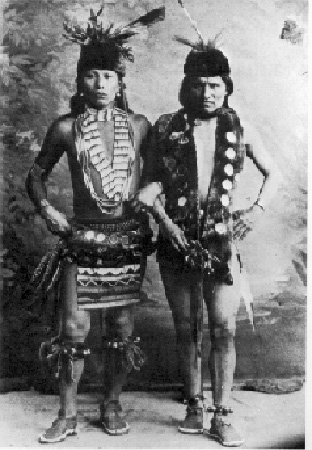
Zitkala-Sa (Gertrude Bonnin)
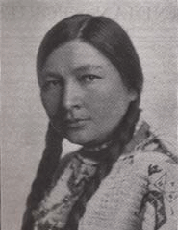
Dr. Charles Eastman
|
|
|
Vine Deloria Jr.
|
|
|
Paula Gunn Allen.
|
|
|
Black Elk discussion: Corey Porter
Black Elk’s Story
“…if it were only the story of my life I think I would not tell it… (1)”
Obj. 3b. Native American Indian alternative narrative: "Loss and Survival"
(Whereas immigrants define themselves by leaving the past behind in order to become American, the Indians were once “the Americans” but lost most of their land along with many of their people. Yet Native Americans defy the myth of "the vanishing Indian," choosing to "survive," sometimes in faith that the dominant culture will eventually destroy itself, and the forests and buffalo will return.)
· survival though the oral tradition:
“As I sit here, I can feel in this man beside me a strong desire to know the things of the Other World. He has been sent to learn what I know, and I will teach him (xxv).”
“There is so much to teach you. What I know was given to me for men and it is true and beautiful. Soon I shall be under the grass and it will be lost. You were sent to save it, and you must come back so that I can teach you (xxvii).”
· though retelling/appropriation:
“The nature of that duty as he conceived it will be apparent to readers who approach the book in no condescending mood as of a civilized person more or less curious about the ‘savage’ mind, but with the humble desire of one groping human being to understand another and perhaps to learn a little more in a world where so very little can be known (xx).”
As Black Elk states, “Is not the sky a father and the earth a mother, and are not all living things with feet or wings or roots their children? (2)”
And…
“Then I was standing on the highest
mountain of them all,
And round about beneath me was
the whole hoop of the world.
And while I stood there, I saw more
than I can tell and I understood
more than I saw;
For I was seeing in a sacred manner
the shapes of all things in the spirit,
And the shape of all shapes as they must
live together like one being.
And I saw that the sacred hoop of my
people was one of many hoops
That made one circle, wide as daylight
and as starlight.
And in the center grew one mighty
flowering tree sheltering all the children
of one mother and one father.
And I saw that it was holy.”

Also
Obj. 4
To register the minority dilemma of assimilation or resistance—i. e., do you fight or join the culture that oppressed you? What balance do minorities strike between economic benefits and personal or cultural sacrifices? In general, immigrants assimilate, while minorities (esp. African Americans) remain distinct.
· The photo on the cover: Buffalo Bill’s Wild West Show in England, 1887.
· p.10 Fire Thunder, p.12 Black Elk
· p.63
Leftover notes from previous classes
This info-bit won't resolve all our questions last week regarding the literary value of Push, but anyway . . . . On this week's Sunday night episode of the game show Jeopardy!, the title of our novel Push was the question to an answer (in Jeopardy mode).
The category was "One-Word Imperatives."
The Answer was something like, "The title of a 1999 novel by Sapphire, or a command you hear in a delivery room."
Push
Tuskegee Airmen Win Congressional Gold Medal
POSTED: 11:37 am CST March 1, 2006
UPDATED: 12:12 pm CST March 1, 2006
WASHINGTON -- The Tuskegee Airmen, the first group of black American fighter pilots, will receive the Congressional Gold Medal under a bill passed in the House on Tuesday.
The bill, which passed 400-0, would be the airmen's second congressional recognition. Both chambers passed a resolution honoring the pilots last year.
"They have fought not really just for black folks. They fought for a better America. They fought for a better world," said Rep. Charles Rangel, D-N.Y., the sponsor of the bill. "They were pioneers not only in fighting the war but showing and giving self-esteem to so many younger people."
About 1,000 black pilots were trained to fly and maintain combat airplanes at the Tuskegee, Ala., air base during World War II. Facing strong discrimination in the segregated military, the airmen flew bomber escorts. They were credited with never losing a bomber and with shooting down more than 100 enemy aircraft. Military officials estimate about 200 of the Tuskegee Airmen are alive today.
The bill requires House and Senate leaders to present a Congressional Gold Medal, the highest award of the House, collectively to the Tuskegee Airmen. About 300 individuals and groups, including civil rights activist Rosa Parks and Olympian Jesse Owens, have received the honor since 1776.
A similar bill passed in the Senate last October.
Last year the House voted to tighten rules on such congressional awards - specifically eliminating the ability of groups to win the Gold Medal. That bill died in the Senate.
Copyright 2006 by The Associated Press. All rights reserved. This material may not be published, broadcast, rewritten or redistributed
Black Elk discussion: Anuruddha Ellakalla
- Black Elk Speaks -
Black Elk Speaks echoes the voice of Native Americans. Even though they could have a large “native” voice, there are no people to listen them. Therefore, they are voiceless. They have great visions of social ethics and spiritual values, but they are choiceless. Black Elk, the speaker of the book and the leader of the Lakota Sioux nations, tells his heroic but sad stories about their nation. According to Black Elk, he has three missions as a leader. At the early age of his life, he is a great warrior. Later, he becomes a medicine man. At the end, he dies as Catholic man. However, the first portion of his stories is about his adventures as a young boy and a young warrior. He says:
"My friend, I am going to tell you the story of my
life, as you wish; and if it were only the story of my life I think I would not
tell it; for what is one man that he should make much of his winters, even when
they bend him like a heavy snow? So many other men have lived and shall live
that story, to be grass upon the hills” (1).
In his story, Black Elk presents Native Americans' voices:
“He had no right
to go in there, because all that country was ours. Also the Wasichus had made a
treaty with Red Cloud (1868) that said it would be ours as long as grass should
grow and water flow. Later I learned too that Pahuska had found there much of
the yellow metal that makes the Wasichus crazy; and that is what made the bad
trouble, just as it did before, when the hundred were rubbed out” (60).
“The soldiers
killed as many women and children and men as they could while the people were
running toward a bluff. . . . These people were in their own country and were
doing no harm. They only wanted to be let alone” (69).
“We were in our
own country all the time, and we only wanted to be let alone” (80).
“Those Wasichus
had come to kill our mothers and us, and it was our country” (96).
The Native Americans are voiceless and choiceless. Although they change their religious beliefs to merge into the American dream, they claim to a great spiritual belief system. Black Elk says, to them the sky is “a father” and the earth “a mother” and “all living things with feet or wings or roots” are “their children” (2). These living things are in a hoop. The “hoop so large that everything is in it - all two-leggeds like us, four-leggeds, the fishes of the streams, the wings of the air, and all green things that grow. Everything is together in this great hoop” (a web quotation). Although their human bodies belong to the earth, their souls are thoroughly connected to the divine souls:
Question: If America allowed Native Americans’ voices and choices to be heard, do you think it would harm Americans’ common dream?
Can the dominant culture and American Indian culture coexist on equal terms?
Furthermore, Native Americans can fly somewhat similar to the African American. Black Elk says:
“Then they turned and left the ground like arrows slanting upward from the bow. When I got up to follow, my legs did not hurt me any more and I was very light. I went outside the tepee, and yonder where the men with flaming spears were going, a little cloud was coming very fast. It came and stooped and took me and turned back to where it came from, flying fast. And when I looked down I could see my mother and my father yonder, and I felt sorry to be leaving them.” (17- 18)
Question: How do you compare the Native Americans’ flying with the African Americans’ flying?
“Now I knew the sixth Grandfather was about to speak, he who was the Earth, and I saw that he was very old, but more as men are old. His hair was long and white, his face was all in wrinkles and his eyes were deep and dim. I stared at him, for it seemed I knew him somehow; and as I stared, he slowly changed, for he was growing backwards into youth, and when he had become a boy, I knew that he was myself with all the years that would be mine at last.” (23)
Question: Do you think Native American Indians believe in a rebirth concept?
What comparisons or differences with Buddhist rebirth?
Introduce American Indian Literature
Proceed to special qualities and status, but start with "minority status" according to our definitions
Objective 1
To define the “minority concept" as a power relationship modeled by some ethnic groups’ historical relation to the dominant American culture.
1a. “Involuntary (or
forced) participation”
(Unlike the dominant immigrant culture, ethnic minorities did not choose to come to America or join its dominant culture. Thus the original "social contract" of Native Americans and African Americans contrasts with that of European Americans, Asian Americans, or most Latin Americans, and the consequences of "choice" or "no choice" echo down the generations.)
1b. “Voiceless
and choiceless”
(Contrast the dominant culture’s self-determination or choice through self-expression or voice, as in "The Declaration of Independence.")
Contrast minority with "immigrant story."
Though voluntary immigrants may be discriminated against or exploited for a generation or two, eventually voluntary immigrants become assimilated, Americanized, and inseparable from mainstream or everyday Americans in terms of appearance, language, opportunities.
The groups that remain minorities are those groups that do not fit the pattern of voluntary immigration:
African Americans
Native Americans
Mexican Americans as both minority and immigrant
For most people, the applicability of this non-voluntary or non-immigrant definition is even more obvious for American Indians than it is for African Americans.
One difference emerges: dominant culture tends to like or admire American Indians. Student in last version of this course announced, "Bubbas like Indians," and cited American Indian designs and decals associated with redneck pickup trucks.
Attitude exposes ambivalence on part of dominant culture
Simultaneously admires and destroys
Apess: talents? Murder?
Dominant culture admires the Indian who's gone, ignores the Indian who survives
Maybe the Indian drives a pickup truck, or redneck Bubba is part Indian
My own developing attitude toward American Indians as a subject of knowledge:
Most people don't know much of anything about American Indians. Therefore, if you know anything at all, it's easy to feel as though you know a lot. Early in my career, I became something of a local expert in my teaching areas--
Now I see I was pretty bogus. It's easy to foist off a few familiar attitudes as real knowledge, especially if you tell people something like they want to hear. Most of these bogus trends are to "romanticize" the American Indian . . . .
Doing actual research cured me of some vanity--
